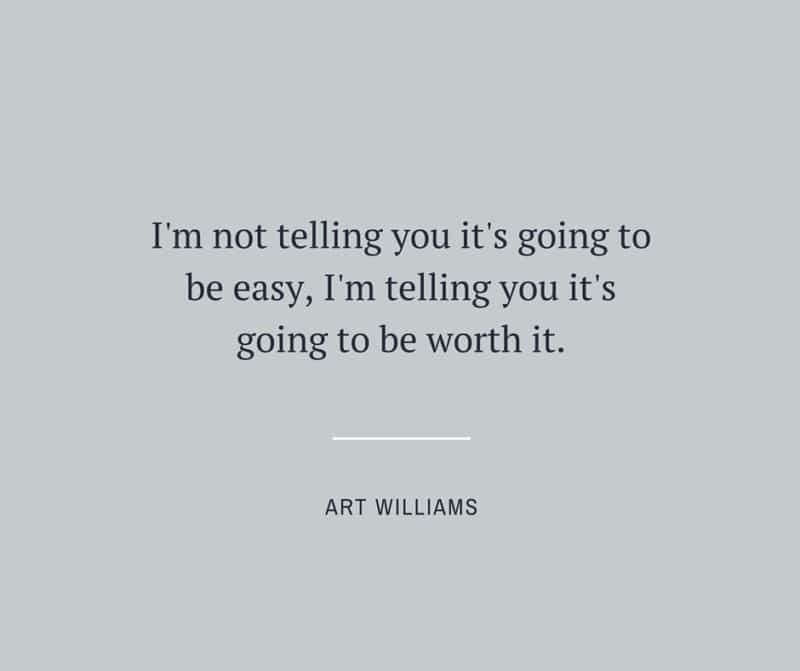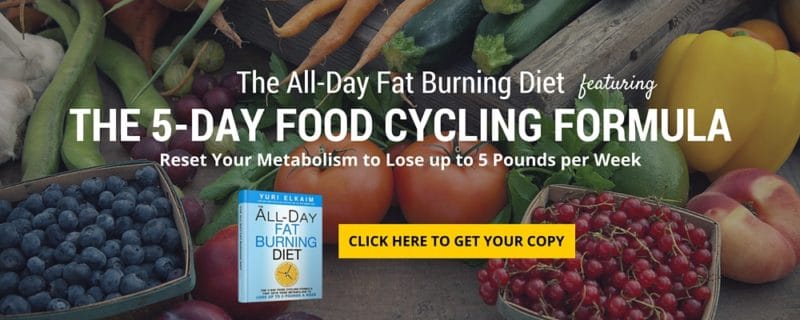Does the idea of fasting fill you with mortal dread? Does even a 1-day fast sound torturous?
Actually, does the very thought of missing even a single meal sound like the most preposterous thing ever?
You’re not alone.
To many people, fasting is an ancient practice that’s of no use to us in the modern world. Little do they know that intermittent fasting benefits your health in incredible ways and can be a powerful part of a fat burning diet. No wonder it’s one of the oldest traditions in the world.
The History and Science of Fasting
Scan the major religions of the world, and you’ll come across fasting traditions time and again. Whether it’s Yom Kippur or Ramadan, people have recognized the benefits of temporarily abstaining from food for centuries.
It makes a lot of sense if you think about it.
When you’re not digesting food, your body diverts energy to a process known as autophagy. It’s essentially a means whereby your body recycles and ditches the junk inside of you that it doesn’t have time to address when you’re digesting food all the time.
From a fat-loss perspective, autophagy has a lot of benefits.
It helps to regulate hormones, improve blood sugar, and increases a couple different enzymatic processes, as well as a process called uncoupling protein 5, which increases fat burning even more.
Fasting also has the same impact on your growth hormones as sleep and intense exercise: it helps your muscles grow. Finally, it’s also one of the only ways we know of to extend lifespan, as has been demonstrated in various animal studies.
Think about how you feel after a long day: don’t you sometimes just want to do absolutely nothing for a while so you can recharge? Your body experiences that kind of drain as well, which is why not eating at least for a day can be very good for you.
With that said, I know you might still be intimidated at the idea of fasting, so let’s look at a few principles and tips that can guide you through your first 1-day fast.
The Key to Doing a One Day Fast
1. Commitment
The most important thing you can do when starting a 1-day fast is to promise yourself you’ll stick with it. You will inevitably experience some discomfort during the fast, and although it’s not insurmountable, it does require some willpower to get past. Commit from the very beginning, and you’ll be going into it with the right mindset.
There’s a lot of power in commitment; harness it!
A lot of the problems people have with fasting are mental. After a while of not eating, it quickly becomes apparent if you’re using food as an emotional crutch. There’s also the fear factor which tries to tell you that you’re harming yourself. Both of these voices are devils on your shoulder trying to lead you astray. Don’t listen to them.
2. Get out of the house
You can’t imagine how many temptations there are in your kitchen until you have skipped eating for a few hours.
If you’re like me and you work from home, the kitchen can become a huge stumbling block during your fast. It becomes way too easy to break your fast with a quick nibble from the fridge.
As I often say, environment always trumps willpower. Don’t give it the upper hand.
3. Water, water, water
A lot times when you think you’re hungry, you’re actually just thirsty. The simple way to beat this is to drink a lot of water.
Water actually curbs your appetite, as it decreases one of your hormones called ghrelin, which tells your brain that you’re hungry. By drinking more water—especially before your meals—you can quiet that nagging hunger.
Most of us aren’t drinking enough water anyway, so a couple extra glasses a day won’t hurt.
As it is, you want to be drinking about half of your body weight (in pounds) in ounces per day. For example, I weigh 170 pounds, so I drink 85 ounces a day, almost three liters of water. I mix it up with various herbal teas—as long as they don’t contain caffeine—so I usually don’t even realize how much water I’m drinking.
Please don’t underestimate this. Water is your best friend during a 1-day fast.
4. Timing is everything
You don’t have to fast for forty days and forty nights to see the benefits. That’s because an ideal fasting target is between 18 to 24 hours, as that’s when science shows us the real benefits kick in.
This kind of fasting is easier to fit into our busy modern schedules, and as such, has led to the increasing popularity of intermittent fasting. It’s one fitness fad I’m actually in full support of!
There’s plenty of info to share about intermittent fasting, but here’s my biggest tip regarding this powerful fasting method: with 18 hours being the inflection point where fasting benefits start to kick in, you should aim to start your 1-day fast after dinner.
Here’s why: let’s say you have dinner at 6 p.m., and you finish at 6:30 p.m.—this means your food will be digested by 8 p.m., and your body will begin to enter a fasted state.
If you go to bed at 10 p.m. and sleep nine hours until 7 a.m. the next morning, you will have already clocked 11 hours on your fast by the time you wake up—and you slept through most of it!
This means you only need to put in a minimum of another seven hours of fasting, which will take you up until 2 p.m.—halfway through the afternoon. That doesn’t sound impossible, does it?
Can you last until 2 p.m. without food? Physiologically, the answer is yes. If you’ve got a lot of body fat, the answer is double-yes. Remember, if your body doesn’t have food coming in, what is it going to use as fuel? It’s not going to use your muscle mass, at least not at first; it’s going to dig into your fat reserves.
For instance, if you weigh 350 pounds and you have a lot of body fat, you’re probably going to have a much easier time fasting than somebody who has a very low percent of body fat because there’s not as much for their body to draw on in a fasted state. If you’re on a deserted island together, that skinny person isn’t going to last very long, whereas you’re an energy-dense fuel source who will last a lot longer.
5. Make use of the mental charge
In addition to the physiological and weight loss benefits it provides, intermittent fasting gives you a level of awareness about why you eat and what you do that is really unparalleled. It pulls everything into focus.
It’s an incredible experience that can be of immense benefit to you. This is why fasting has historically been used as a period of self-reflection. Put this time to good use.
Enjoy This Article?
Did you enjoy these tips on How to Do a 1-Day Fast? Intermittent fasting is so powerful that it’s one of the days in my five-day food-cycling formula that’s the foundation of my book, The All-Day Fat-Burning Diet.
In this book I show you how to use a 1-day fast in your day-to-day life so you can help reset your metabolism and lose up to five pounds per week.
I know this because we’ve led hundreds of people through this very program and have perfected it to the level where it’s almost predictable.
Whether you’re looking to lose your first 50 pounds or your last 10, this five-day food-cycling formula—which uses this 1-day fast—is very effective. The cool thing is that once you’ve tried it, it becomes a very intuitive way of eating. You become more in touch with what your body needs, as opposed to eating with your eyes and emotions.
We’ve all been brainwashed into believing we have to have three square meals a day, or if we’re trying to get in shape, that we must eat five or six times a day. It’s all nonsense. Your body tells you what it needs, and it doesn’t follow any of these cultural norms.
I dispel a lot of those myths in the book, and give you insight into why it’s been so difficult for you to lose weight up until now.
I also show you the six triggers that are holding you back from losing weight, then I walk you through this proven five-day food-cycling formula to help you lose fat and keep it off for good.
I hope this has quelled your fear of fasting. Give the 1-day fast a shot, and let me know how it goes.


